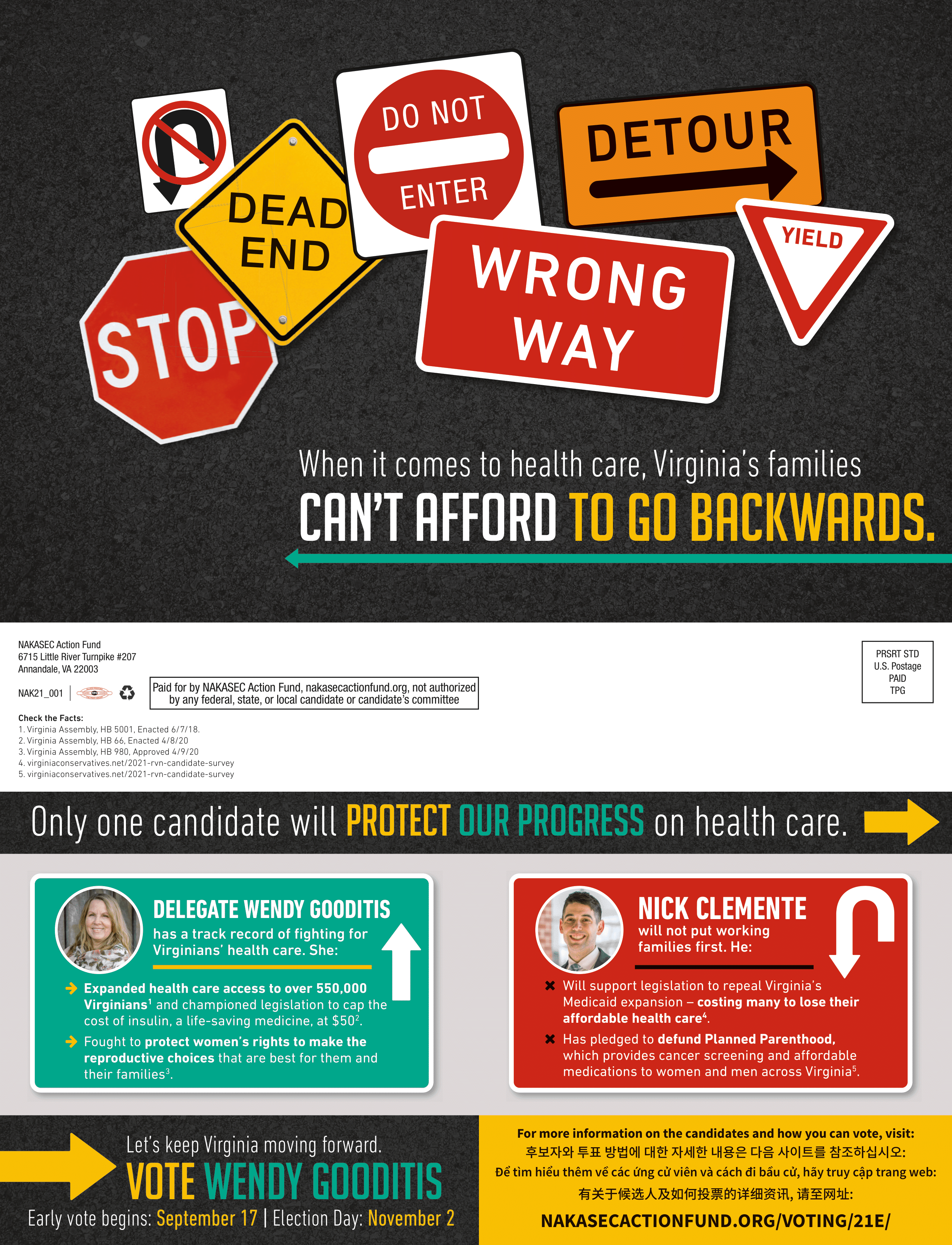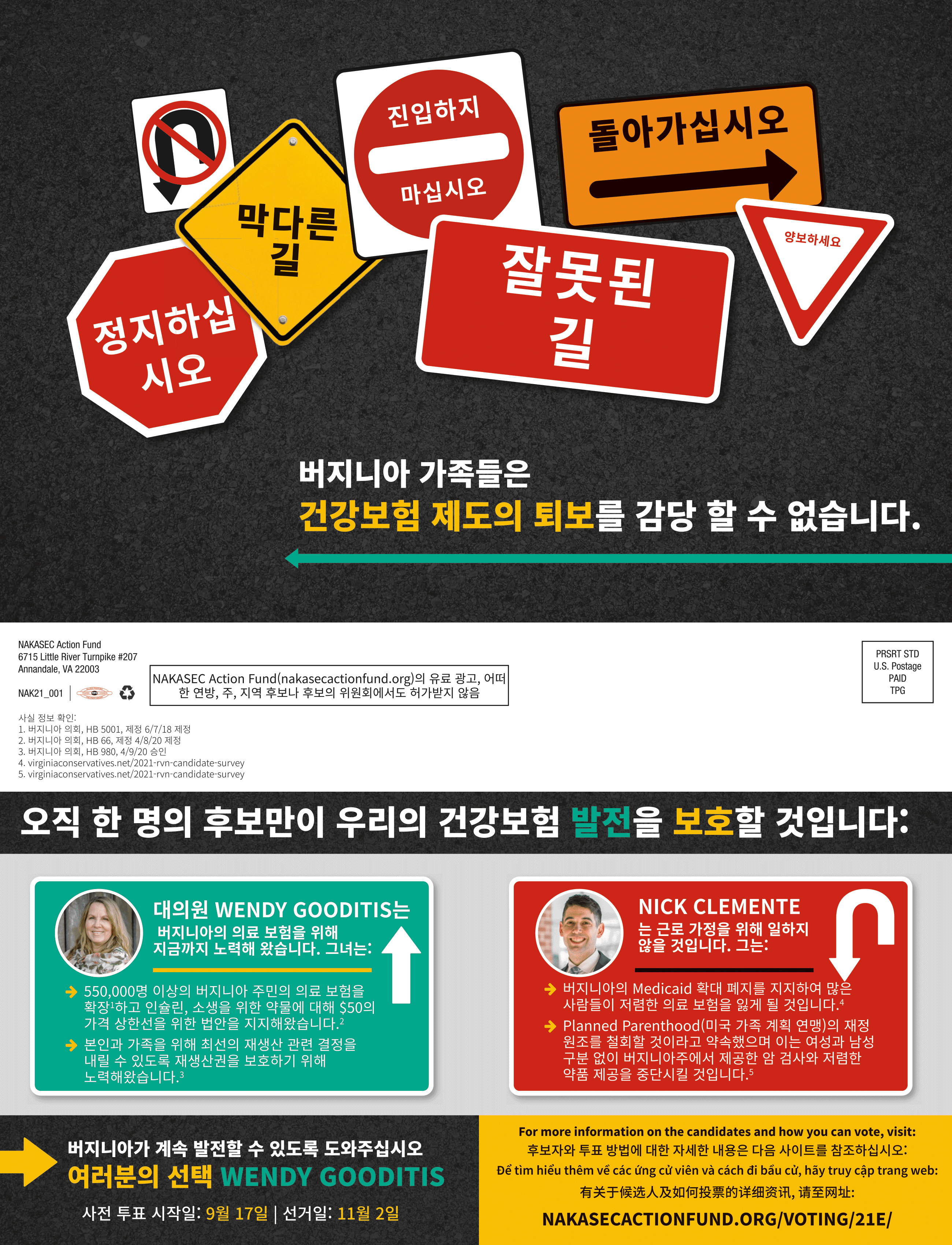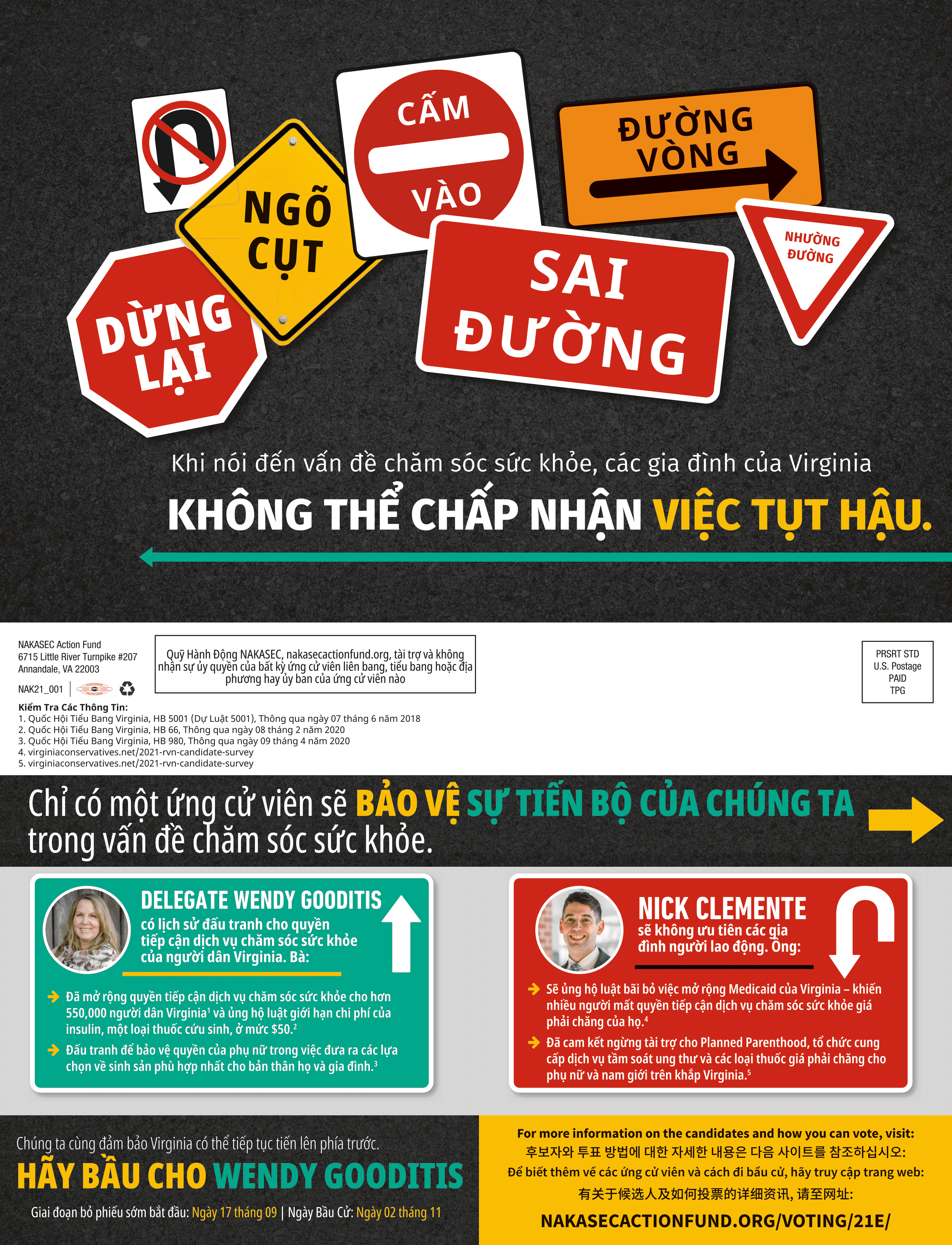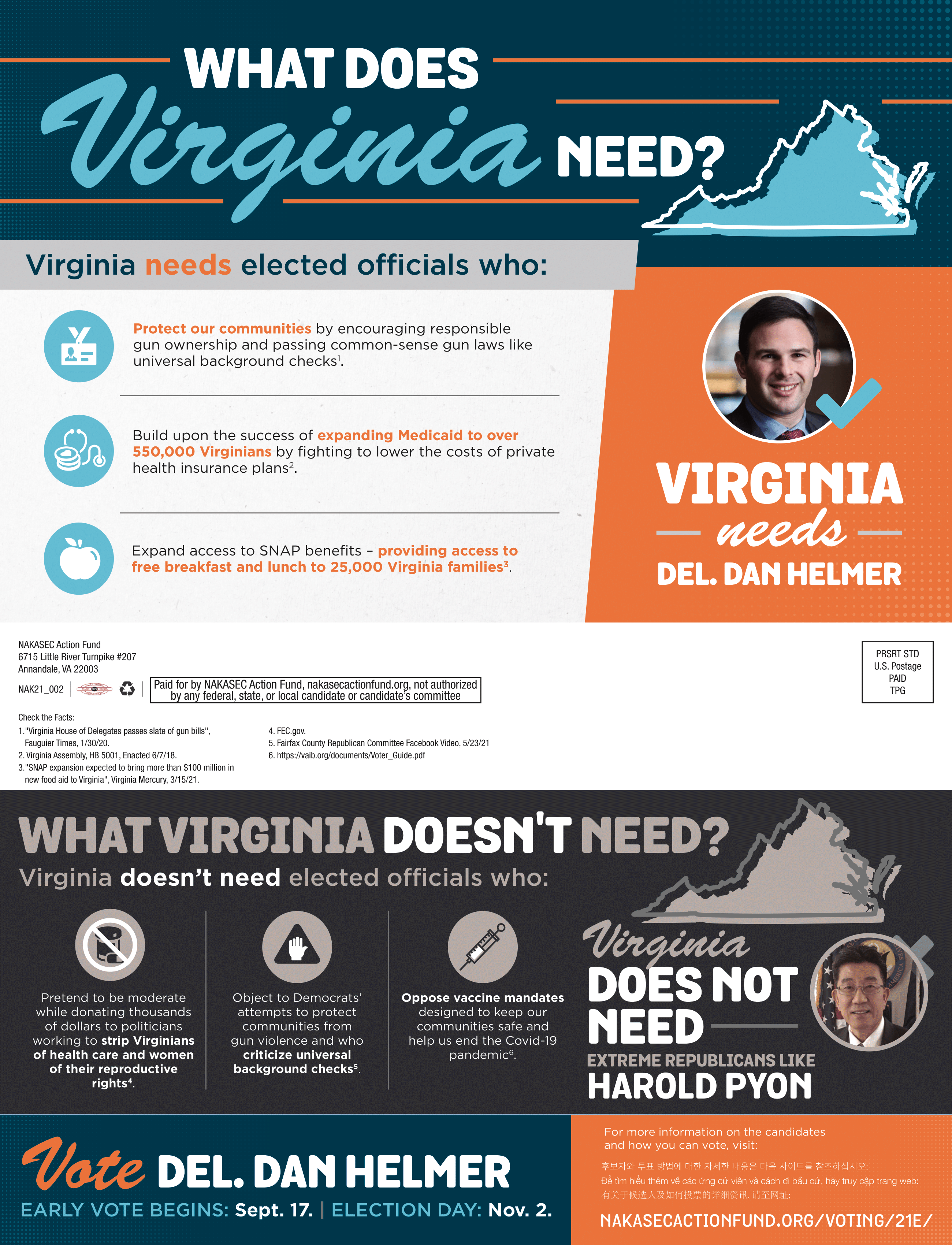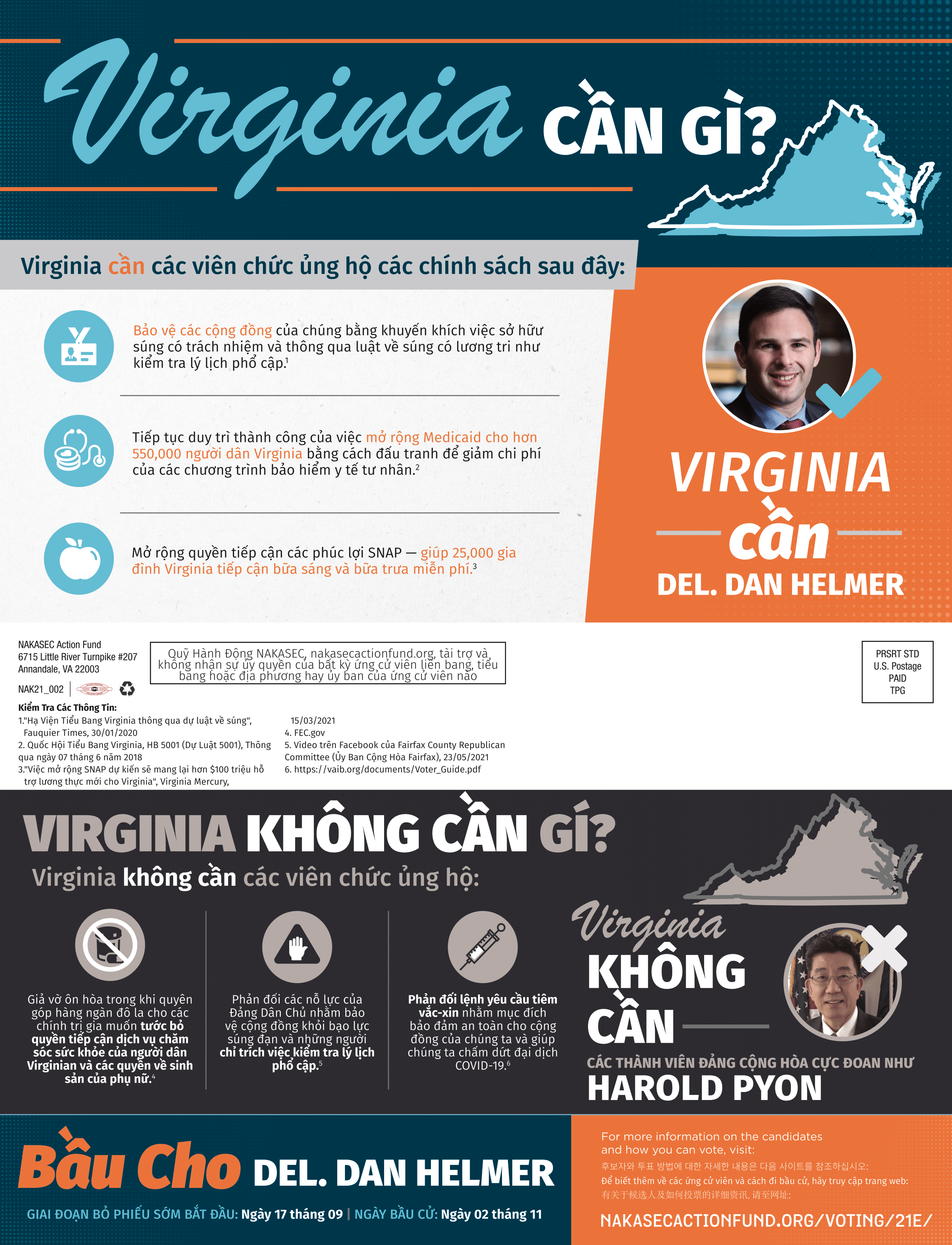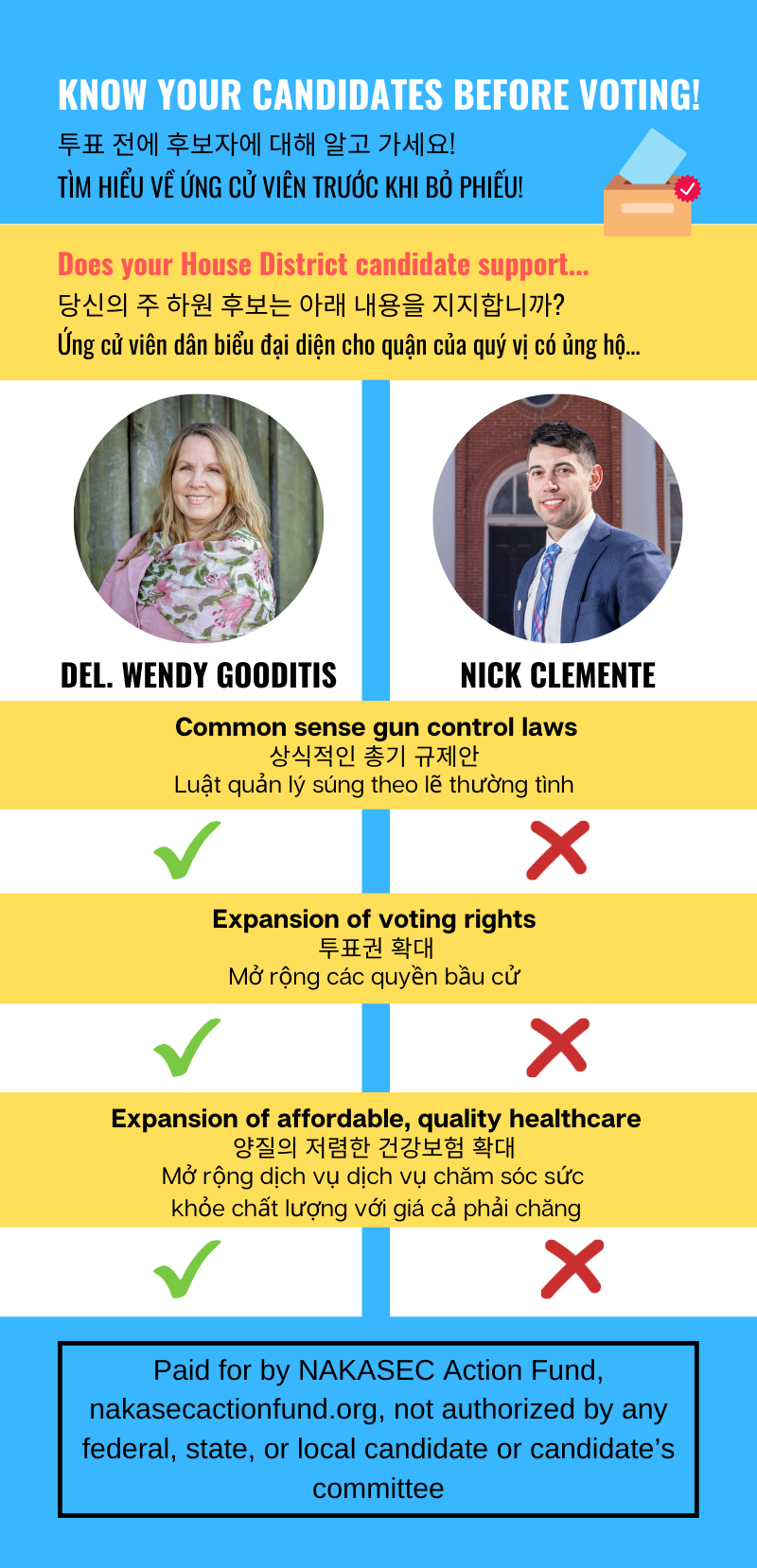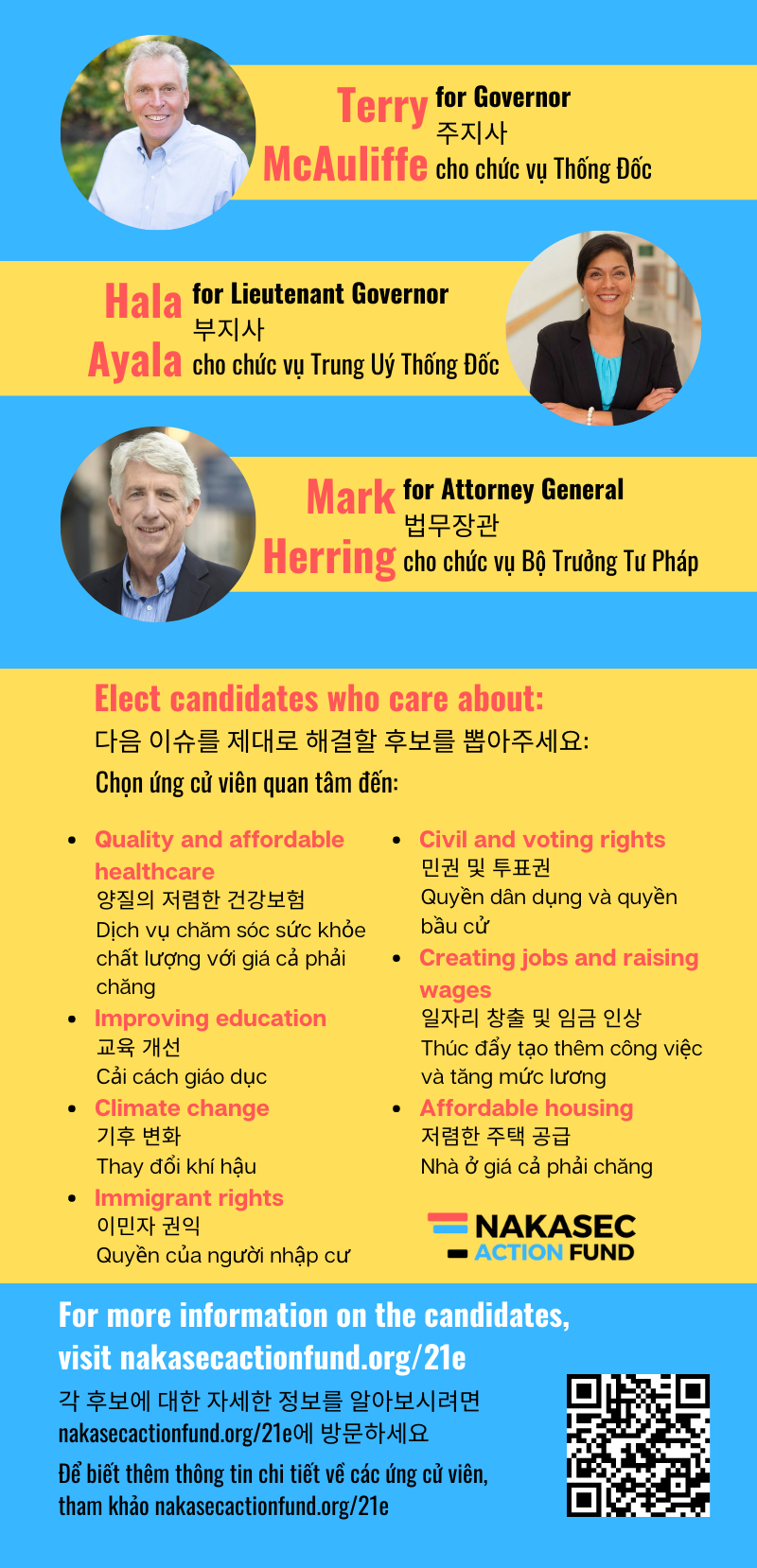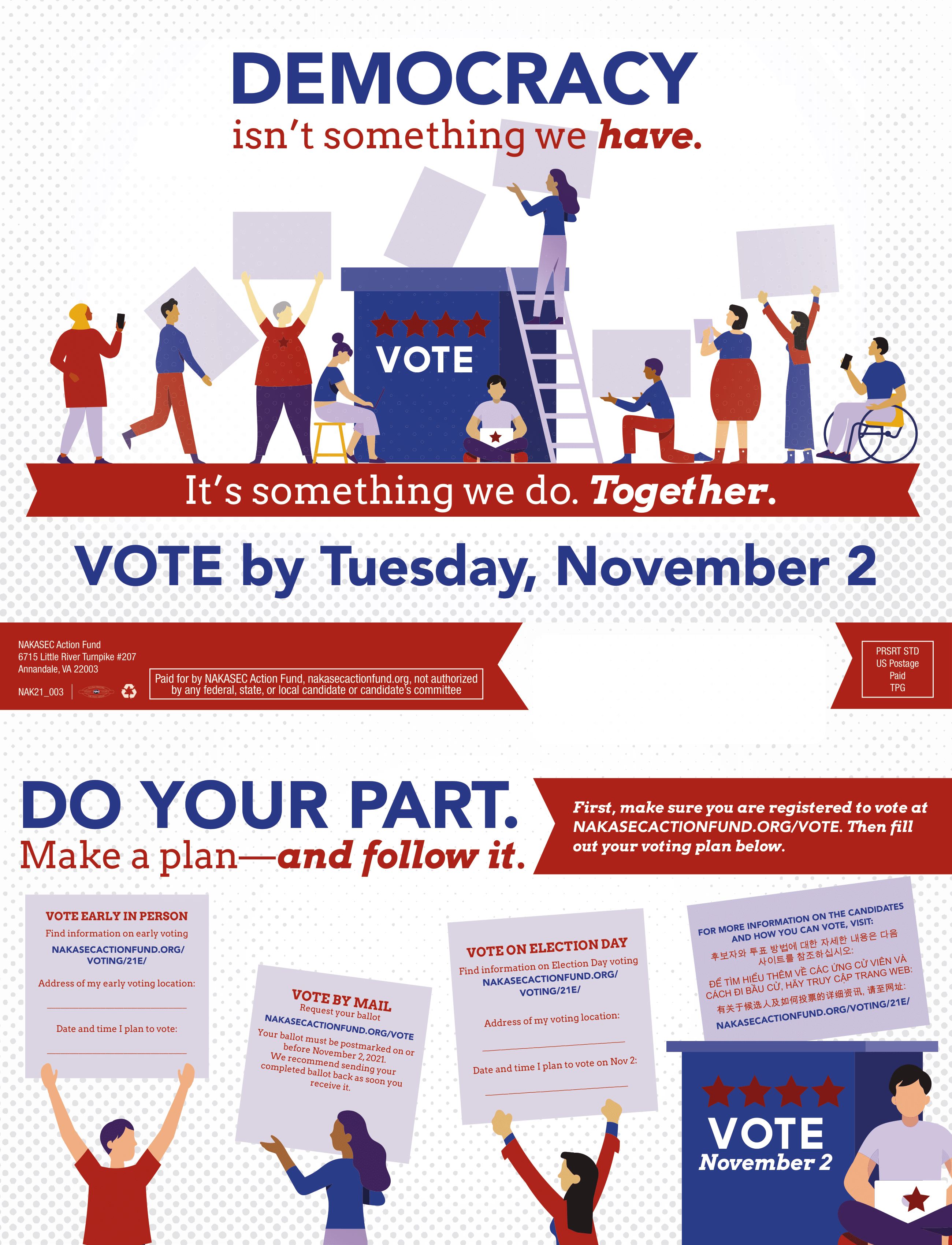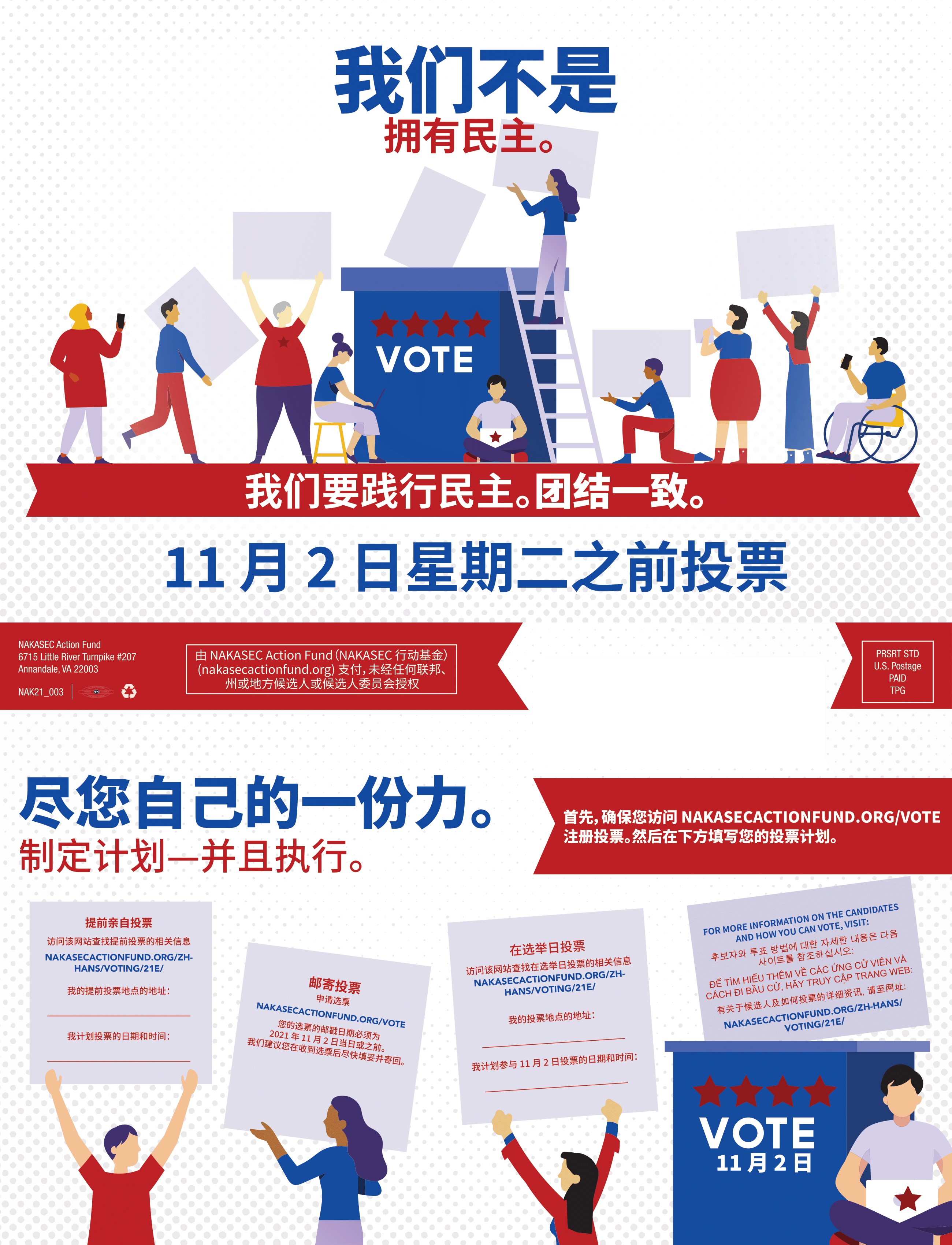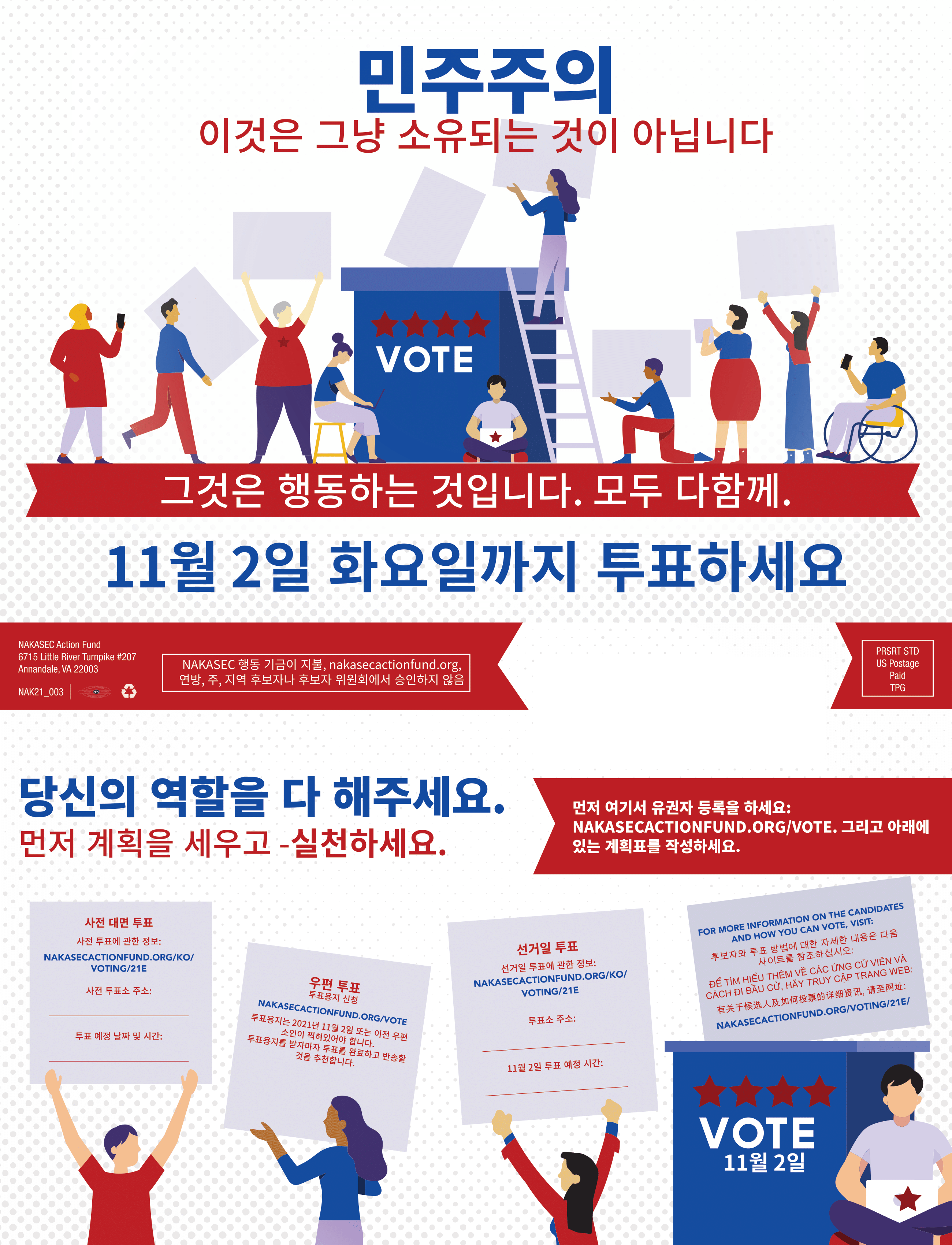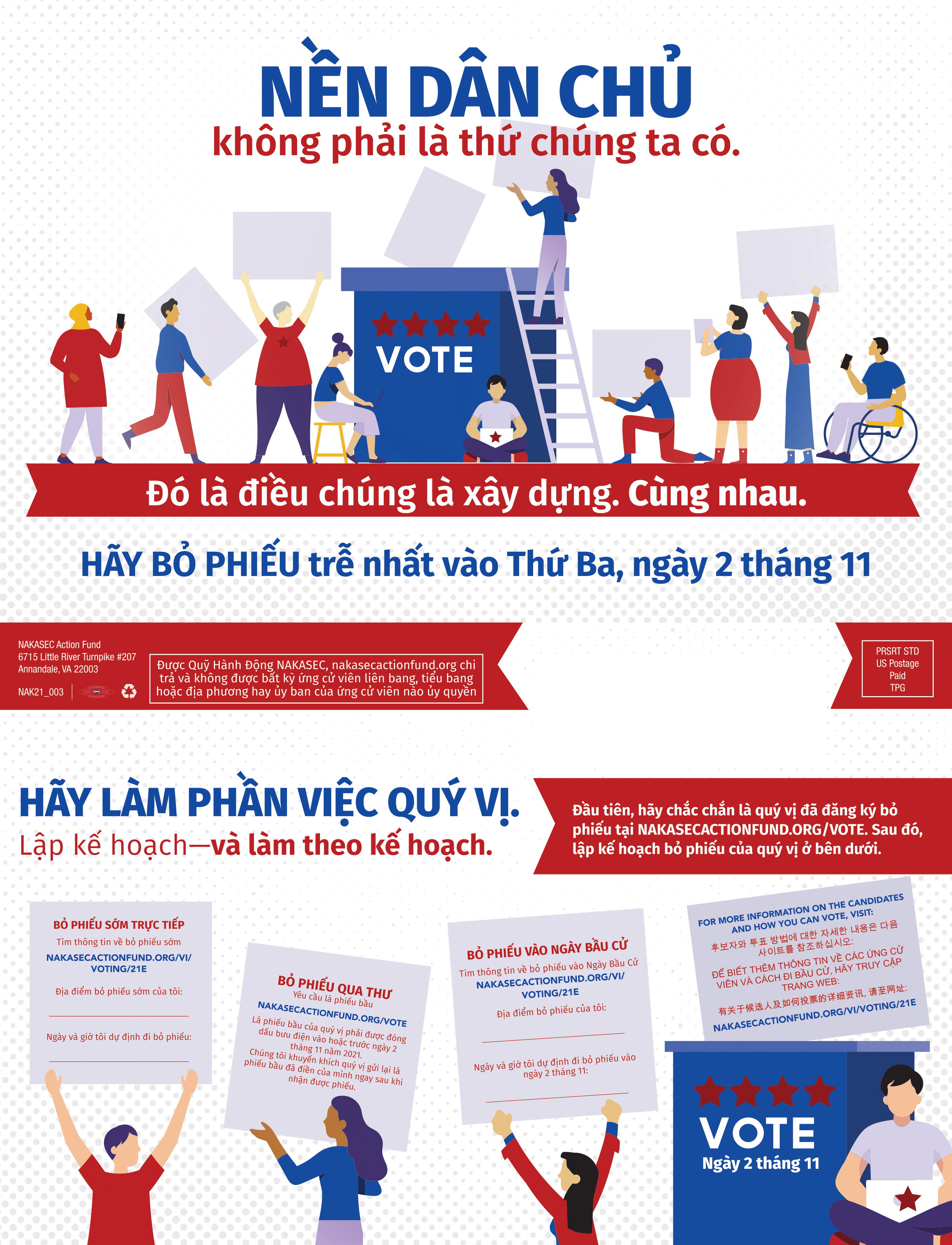This November, Virginia voters will have a chance to elect a new Governor, Lieutenant Governor, Attorney General, and State Delegates! Will voters turn out and vote for candidates who care about workers, communities of color, immigrants, women, and young people? Will they vote for candidates who will ensure that the victories we have won – like minimum wage increases, greater health care access, immigrant justice, voting access, and so much more – are protected or will be rolled back?
November 2 will be a crucial election to choose progressive candidates who value the safety, well-being, and prosperity of everyone who lives in Virginia. Learn more about the positions up for election, the candidates running, and make a plan to vote using our checklist below!

